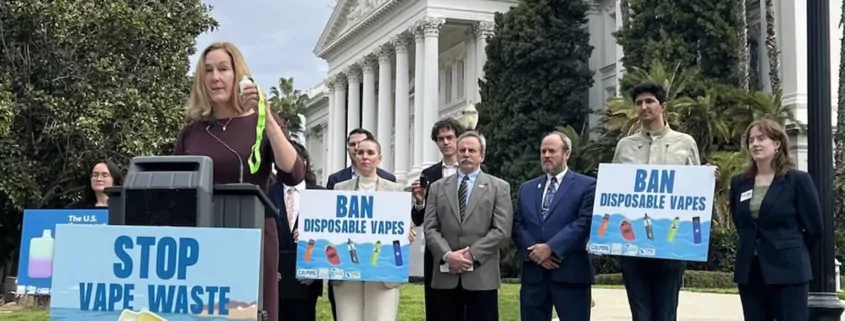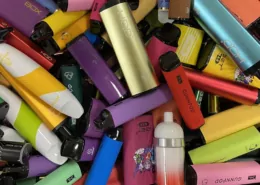California Proposes Ban on Disposable Vape Sales
California state legislators have introduced a bill that would prohibit the sale of new or refurbished disposable electronic cigarettes, also known as vapes, starting January 1, 2026. The proposed legislation, AB 762, is part of a broader effort to curb plastic pollution in the state and follows similar laws banning single-use plastic bottles, Styrofoam food containers, and plastic carryout bags.
Key Provisions of the Proposed Bill
- Bans the sale or distribution of new or refurbished disposable vapes in California, effective January 1, 2026
- Allows local governments or the state to impose fines for violations:
- $500 for the first offense
- $1,000 for the second offense
- $2,000 for subsequent offenses
Assemblymember Jacqui Irwin, the bill’s author, emphasizes the environmental impact of disposable vapes, stating that the ban will help prevent battery acid from these devices from leaching into lands and waterways. According to the US Centers for Disease Control and Prevention (CDC), e-cigarette waste can contain heavy metals, hazardous lithium-ion batteries that can spark fires, and chemical toxins.
Advocates of the bill, such as Tony Hackett from Californians Against Waste, argue that disposable vapes not only pollute the environment but also target vulnerable populations, particularly children. The appeal of disposable vapes often lies in their accessibility and affordability compared to refillable devices, making them attractive to young users.
California has already taken steps to regulate vape sales and protect public health, including a 2020 law banning the sale of most flavored tobacco products to prevent their use among children. More than 30 states have also passed laws requiring a tax on e-cigarettes, and all US states ban the sale of e-cigarettes to minors.
Opposition and Potential Impact on Businesses
The California Grocers Association opposed a similar 2022 proposal, arguing that it could lead to increased tobacco smuggling. Arkan Somo, co-founder of the Neighborhood Market Association, expressed concerns that the new bill would burden family-owned shops that sell tobacco products and put California at a disadvantage.
California’s proposed ban on disposable vape sales follows similar measures in other countries. Belgium implemented a ban on single-use vape sales on January 1, 2023, and the United Kingdom is set to enact a similar rule in June. If passed, California would likely be the first US state to adopt such a ban, as previous efforts in California and New York have failed.
Conclusion
The proposed bill to ban disposable e-cigarette sales in California represents a significant step in addressing both environmental concerns and public health risks, particularly those affecting youth. As the conversation around the costs and benefits of disposable vapes continues, this legislation has the potential to set a precedent for other states and countries grappling with the challenges posed by these products.








